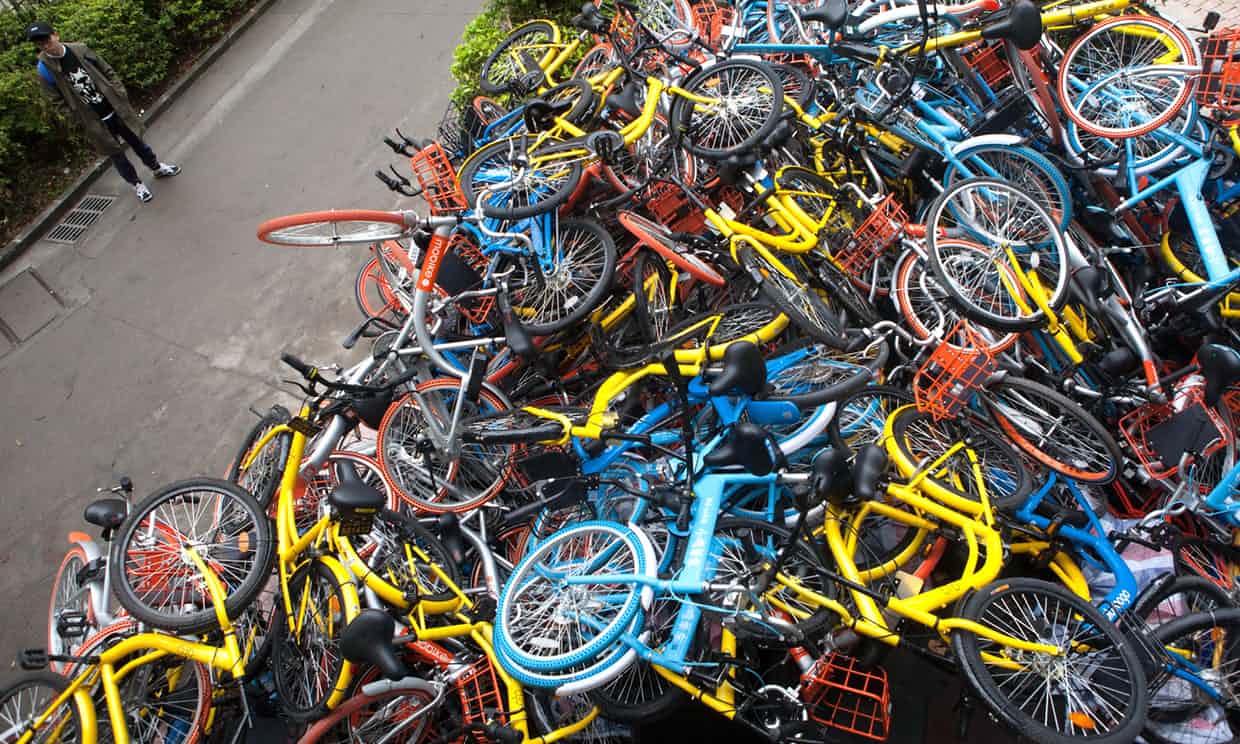Research by: the International Association of Public Transport (UITP), the European Cyclists’ Federation (ECF) and its Platform for European Bike Sharing and Systems (PEBSS)
Date published: July 2017
Why did we select this research?
The arrival and rapid expansion of dockless bike share schemes in cities all over the world, has a variety of implications for a city’s transport policy. There are some issues as reports from Chinese cities suggest that there is a lack of redistribution efforts by these operators, with bicycles sometimes inundating popular areas of the city, compounded by a lack of maintenance leading to discarded bikes piling up in public spaces. The paper warns:

“A carefully designed service area strategy for all forms of bike share systems is a critical component of a wider urban mobility strategy. Forward planning of parking spaces and other cycling infrastructure, providing orderly streets, ensuring public safety, and promoting tourism are important elements of this strategy."
The paper includes a list of best practices which can help cities and relevant public authorities construct their own framework to manage the arrival of dockless bike sharing operators.
Key findings
As a result of this analysis, UITP, ECF and PEBSS have developed a list of best practices that can help cities and relevant public authorities construct their own framework, grounded in their local context, to manage the arrival of dockless bike sharing operators:
- Registration, Licensing & Regulations: Cities/Public Authorities must give green lights to shared bicycle operators working across their urban / suburban territory (ies) and ensure the regulatory framework governing the operations of these companies, such as against indiscriminate bicycle parking, is appropriate.
- Orderly streets: Cities should develop a policy to encourage more bicycle use, and provide more bicycle parking areas and safe cycling infrastructure. The number of bikes to be deployed must be determined in coordination with relevant public authorities, and cities should have the power to enforce removal or charge and fine operators for the removal costs of bicycles that are illegally parked, dumped, or discarded in case they have to do it themselves.
- Riding (rolling) stock: The bicycle equipment, the “riding stock”, must be of sufficient quality, built to withstand the rigours of constant public use and exposure to the elements, meeting rider safety and comfort standards.
Reference
Commons position paper: Unlicensed Dockless Bike Sharing (2017). Retrieved from: https://ecf.com/system/files/Dockless_bikesharing_position_ECF_UITP_.pdf
